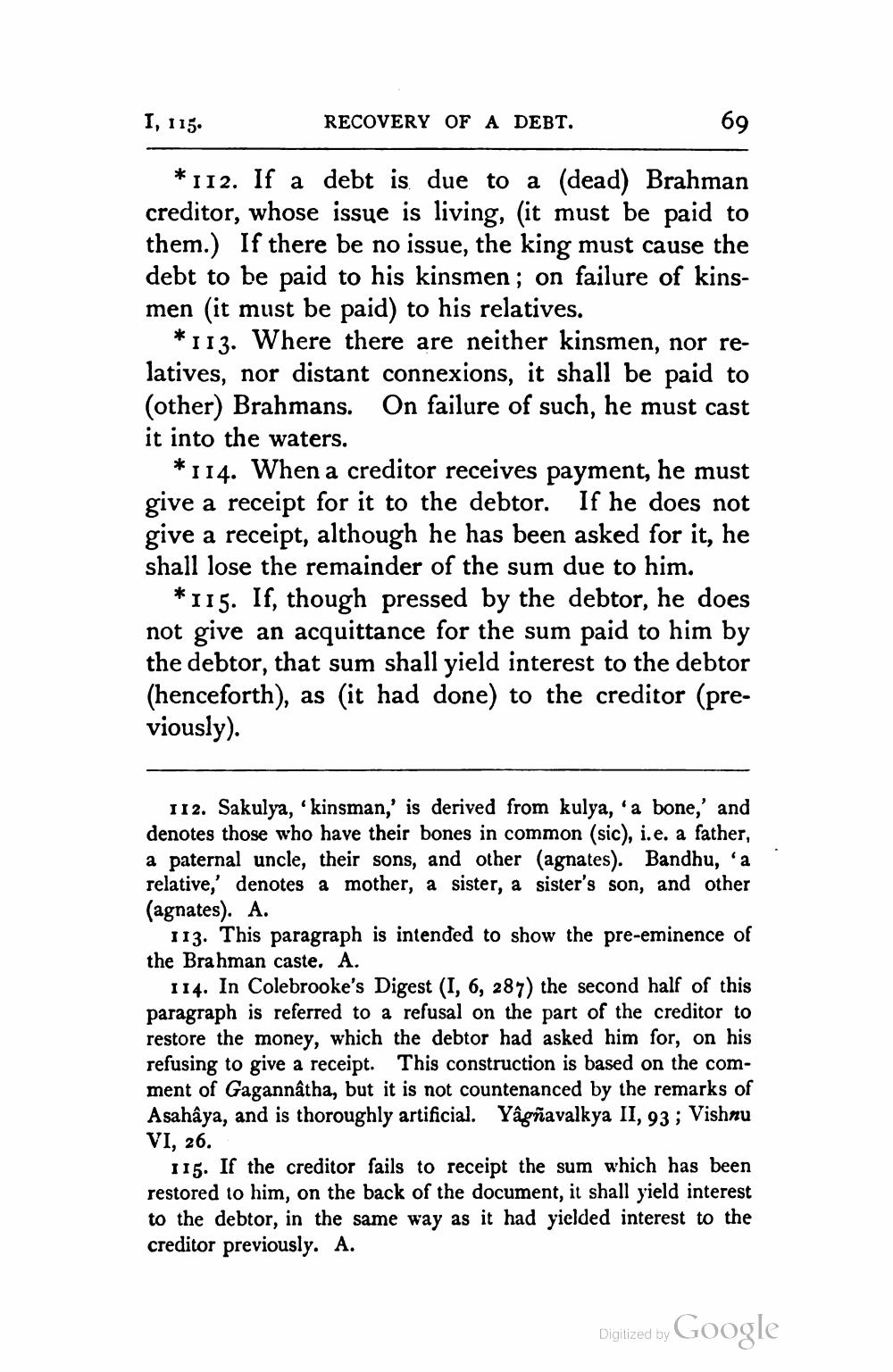________________
I, 115
RECOVERY OF A DEBT.
*112. If a debt is due to a (dead) Brahman creditor, whose issue is living, (it must be paid to them.) If there be no issue, the king must cause the debt to be paid to his kinsmen; on failure of kinsmen (it must be paid) to his relatives.
*113. Where there are neither kinsmen, nor relatives, nor distant connexions, it shall be paid to (other) Brahmans. On failure of such, he must cast it into the waters.
*114. When a creditor receives payment, he must give a receipt for it to the debtor. If he does not give a receipt, although he has been asked for it, he shall lose the remainder of the sum due to him.
*115. If, though pressed by the debtor, he does not give an acquittance for the sum paid to him by the debtor, that sum shall yield interest to the debtor (henceforth), as it had done) to the creditor (previously).
112. Sakulya, 'kinsman,' is derived from kulya, 'a bone,' and denotes those who have their bones in common (sic), i.e. a father, a paternal uncle, their sons, and other (agnates). Bandhu, a relative,' denotes a mother, a sister, a sister's son, and other (agnates). A.
113. This paragraph is intended to show the pre-eminence of the Brahman caste. A.
114. In Colebrooke's Digest (I, 6, 287) the second half of this paragraph is referred to a refusal on the part of the creditor to restore the money, which the debtor had asked him for, on his refusing to give a receipt. This construction is based on the comment of Gagannatha, but it is not countenanced by the remarks of Asahâya, and is thoroughly artificial. Yâgñavalkya II, 93 ; Vishnu VI, 26.
115. If the creditor fails to receipt the sum which has been restored to him, on the back of the document, it shall yield interest to the debtor, in the same way as it had yielded interest to the creditor previously. A.
Digitized by Google




